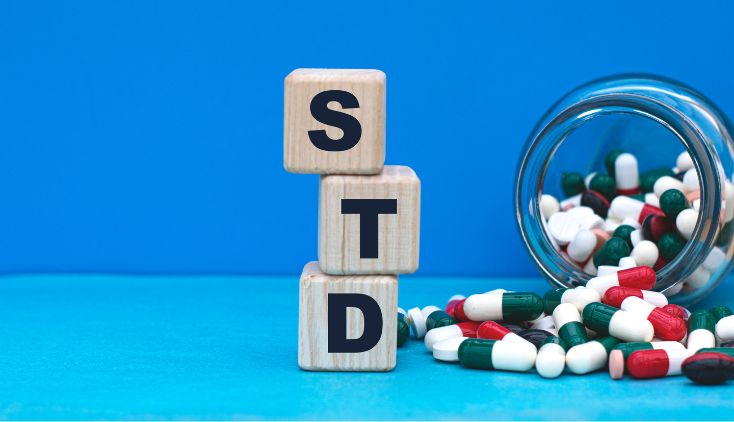Know Your Options for STD Testing
Testing for sexually transmitted diseases (STDs) is an important part of maintaining one's sexual health. There are various types of STD tests available, each with its own advantages and disadvantages. How do you know which type of STD test is best for you or where to get tested? Here are some common types of STD tests that can provide valuable insight into your health.
1. At-Home Kits
At-home kits are becoming more and more available, which is great for those who want discreet results. These kits are affordable, costing less than $100, and convenient. These tests allow you to self-collect several different types of samples, including:
- Urine.
- Saliva.
- Blood drawn from a finger prick.
- Oral swabs.
- Genital swabs.
The samples are then mailed to a lab for analysis and individuals can get their results online or via email. This type of testing is ideal for those who may feel uncomfortable visiting a doctor’s office or clinic, but still want the peace of mind that comes with knowing their STD status. However, these tests don't offer people any treatment for their STDs.
Studies have shown that not only are at-home tests effective, but they also increase the chances of someone testing and getting a diagnosis even when they have no symptoms. Getting tested before symptoms appear is crucial, as it can help prevent the spread of STDs to others and allow for early treatment.
2. Free STD Testing Clinics
For those who want to test in a medical setting but don't have the funds to do so, consider finding a free clinic through your local city or county. Usually, different counties will have a list of clinics that offer STD testing and other sexual health services.
These clinics are often free or low-cost and require people to schedule appointments ahead of time. However, they are a good option for low-income individuals who want fast and accurate results.
While visiting a free clinic is more invasive than an at-home test, these clinics do offer treatment for STDs and additional services like family planning. Much like a regular doctor's appointment, people will be seen by a licensed healthcare professional, have their labs drawn or submit a swab while talking to a provider about their sexual health concerns.
3. Planned Parenthood Testing
Planned Parenthood is one of the biggest names in sexual health education and services in the United States. They offer testing for a variety of STDs, including chlamydia, gonorrhea, syphilis HIV and more.
Treatment for STDs, contraceptives and gender-affirming care are just some of the many other services offered by Planned Parenthood. Like free clinics, you'll need to schedule an appointment ahead of time or arrive early for a walk-in appointment. Planned Parenthood sites might be a bit more costly than free clinics, but they do operate on a sliding income scale and have more clinics in different areas.
4. Blood Testing
Blood testing is commonly used to detect STDs including HIV, Hep B and syphilis. In a doctor's office, your blood test will be collected by a trained phlebotomist and sent to a laboratory for testing. Blood tests are also available through at-home test kits, where a small finger prick is used to collect the blood sample.
5. Urine Testing
Urine testing is commonly used to detect chlamydia and gonorrhea, two of the most common STDs in the United States. The test involves providing a urine sample, which is then sent to a laboratory for testing. Your urine will either be collected at a clinic or can be collected at home, provided it is not accidentally contaminated.
6. Swab Testing
During some STD tests, a swab is used to collect cells or fluid from the vagina, cervix, urethra (for men), anus or mouth depending on the type of infection being tested for. Swab testing is commonly used for STDs like HPV and herpes. HPV testing, in particular, might also be combined with a Pap smear to screen for cervical cancer.
7. Emergency Testing In-Hospital
Some STDs, including late-stage syphilis and untreated HIV, can lead to serious complications that could warrant an emergency visit to the hospital. If you ever find yourself in the emergency room or at the hospital for an extended period and a doctor suspects you might have an STD, they will likely order a blood or urine test to confirm the diagnosis and assess the severity of your infection.
These tests have lab results available within hours, instead of days or weeks like regular clinics. Certain tests, like spinal taps, might also be used to diagnose advanced stages of syphilis. Ultimately, the type of test and treatment you receive will depend on your current symptoms and how severe your STD is.
Why Get STD Testing?
STDs always need treatment, no matter what stage of the infection you are in. Early detection and treatment can reduce the risk of serious complications like infertility, pelvic inflammatory disease, chronic pain and even serious complications like Autoimmune Deficiency Syndrome (AIDS).
Getting tested regularly also helps prevent the spread of infections to other sexual partners, which helps stop the spread of STDs within a community. Whether you choose an at-home test kit or choose to visit a clinic or hospital, taking the proactive step to get tested can make a big difference in preventing STDs, treatment and your overall health.
